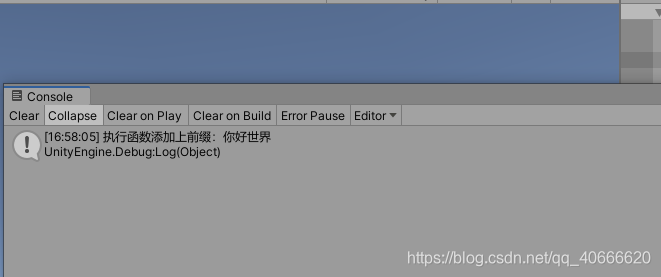一、先看看写法
1、委托
using System.Collections;
using System.Collections.Generic;
using UnityEngine;
public class test2 : MonoBehaviour
{
//声明委托类型
private delegate void MyTestDelegate(string data);
//用委托类型声明委托事件
private MyTestDelegate myTestEventListener;
void Awake()
{
//为事件添加处理函数
myTestEventListener += TestEventProcessFunc;
}
//为事件的处理函数
private void TestEventProcessFunc(string data)
{
Debug.Log(data);
}
void Start()
{
myTestEventListener("你好世界");
}
}

2、回调
using System;
using System.Collections;
using System.Collections.Generic;
using UnityEngine;
public class test3 : MonoBehaviour
{
//执行函数,传一个函数作为参数,这个参数就是回调函数
//<>里面的string,是说这个函数要是接收一个string作为参数的函数
private void TestFunc(string data, Action<string>action)
{
data = "执行函数添加上前缀:" + data;
action(data);
}
//这个是满足上面回调函数格式的函数
private void myAction(string data)
{
Debug.Log(data);
}
// Start is called before the first frame update
void Start()
{
TestFunc("你好世界", myAction);
}
}

区别:
- 从代码上可以看出,一个委托声明的事件用的是
+=,也就是说,可以添加很多个委托声明,一旦进行出发,那么将会按照订阅的顺序,也就是+=的顺序进行全部的调用 - 从思路上来说,回调就相当于把特定格式的函数当作参数传递,而回调更类似于
订阅,用特定格式的委托声明了一个事件,很多符合委托格式的函数都可以进行+=订阅 - 委托是根据委托类型来声明事件,而委托类型决定了声明的事件可以由哪些函数来进行订阅,这种思路好像是要比函数会掉路走得更宽,更有层次感。
至于他们在设计上到底有什么微妙的区别,笔者目前还未达到此水平,等到以后理解了,再回来填坑。